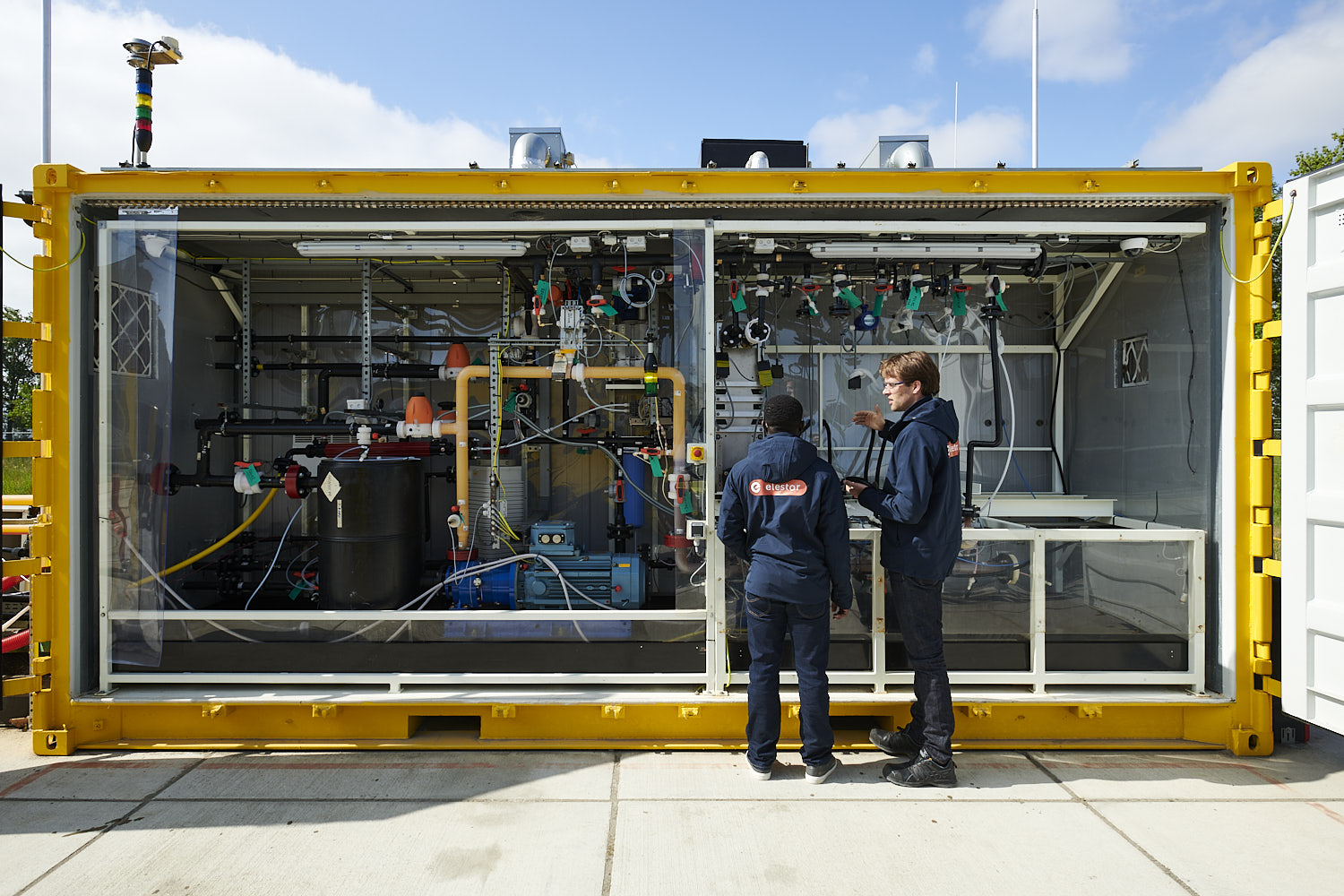
Arnhem, The Netherlands, May 21, 2024. Dutch long-duration electricity storage company Elestor has secured the participation of a prominent group of scientists and sector experts as members of its newly created Technical Advisory Board.
Elestor’s Technical Advisory Board has been asked to investigate and challenge Elestor’s R&D results and conclusions. “Their independent scientific assessment will either provide endorsement of our work or force us to rethink and come up with new ideas. As a result, the scrutiny they’ll provide will undoubtedly help accelerate our already rapid growth,” said Wiebrand Kout, Founder & CTO, Elestor.
Elestor’s Technical Advisory Board will initially comprise three renowned industry experts. In no particular order, they are:
1. Peter Pintauro, Vanderbilt University. Pintauro is not only the H. Eugene McBrayer Professor Emeritus of Chemical Engineering in the Department of Chemical and Biomolecular Engineering at Vanderbilt University, USA, but also co-founder of and Chief Technology Officer at Bardo Climate, Inc, a start-up company that manufactures nanofiber-based products, such as bipolar membranes for energy and environmental applications.
Professor Pintauro, whose career has been illustrious after having been awarded a PhD by the University of California, Los Angeles in 1980, has research interests in the areas of electrochemical engineering, membrane science, fuel cells, nanofiber electrospinning, and organic electrochemical synthesis. He is a Fellow of the Electrochemical Society, a Fellow of the American Institute of Chemical Engineers, and a past President of the North American Membrane Society. He was the 2018 recipient of the US Department of Energy Fuel Cells R&D Award and he received the Walter van Schalkwijk Award in Sustainable Energy Technology from the Electrochemical Society in 2023.
2. Peter Fischer, Heinrich Heine University. Fischer has been working on energy converters and storage systems such as fuel cells and redox flow batteries since 2005 soon after he completed his doctorate in physical chemistry at Heinrich Heine University, Düsseldorf, Germany. In 2011, Dr Fischer became group leader of the Redox Flow Batteries and Stationary Storage group in the Applied Electrochemistry department at the Fraunhofer Institute for Chemical Technology (ICT).
In his position, he was responsible for the RedoxWind lighthouse project. In this project, a large-scale vanadium redox flow battery was installed on the premises of the Fraunhofer ICT. From 2017 to 2021, he also headed the FlowCamp doctoral network, which focused on new flow battery technology. His research focuses on vanadium and bromine chemistry and stack technology. Dr Fischer chairs the Communication Committee of the European association Flow Batteries Europe, co-chairs the "Sustainability" group in Batteries Europe, founded the European Union research network FLORES (Network of Flow Battery Research Initiatives).
3. A chemistry professor who is renowned both within and beyond our industry and who must remain anonymous for now due to a current contractual arrangement that prevents him from publishing his engagement with any third party until further notice. The professor’s collaboration with Elestor has naturally been approved by his current employer and there is no conflict of interest. Elestor expects to be given permission to name the professor later in 2024.
About Elestor
Elestor has emerged as a leading provider of large-scale, long-duration storage facilities for clean energy generated by solar panels and wind turbines. It does this with a hydrogen-based flow battery that is constructed around an electrochemical cell, where chemical energy is provided by the chemical reaction between two active materials. The active materials are contained in two tanks separated by a membrane stack, through which protons travel to absorb or release electrons during charging or discharging. The Elestor batteries are both affordable and easy to scale. It will be installed at locations all over the world in the years to come.
Elestor’s technology will help balance supply and demand for clean energy and make the energy transition possible. It has attracted a diverse range of investors, including prominent names in the energy sector that are at the forefront of the energy transition. These include Norwegian energy giant Equinor, the world’s largest independent tank storage company Vopak, and Dutch clean energy group Koolen Industries, along with climate-focused investment funds, and government bodies supportive of technological innovations that help steer society towards a sustainable future.

With € 30 million, the SLDBatt project in the context of the Growth Fund Material Independence & Circular Batteries is the largest R&D project into battery technology for long-term storage of sustainably generated electricity in the Netherlands
Minister Hermans with SLDBatt consortium representatives at IEA Energy Storage Symposium in Rotterdam (credits: Mathias de Graag / RVO)
Read more
Elestor’s Hydrogen-Iron Flow Batteries: Powering Europe’s Resilient and Sovereign Energy Future
In its Innovation News Network article from 15 July 2025, Elestor illustrates how its hydrogen‑iron flow batteries can deliver long‑duration, modular energy storage to bolster Europe’s grid stability and strategic autonomy. The story highlights the team’s use of abundant, safe materials and regulatory-aligned design to ensure rapid deployment at scale.
Read more
Permissible technology
Why we find it easy to gain approval for our hydrogen-iron flow battery from both regulators and the general public
Read more
